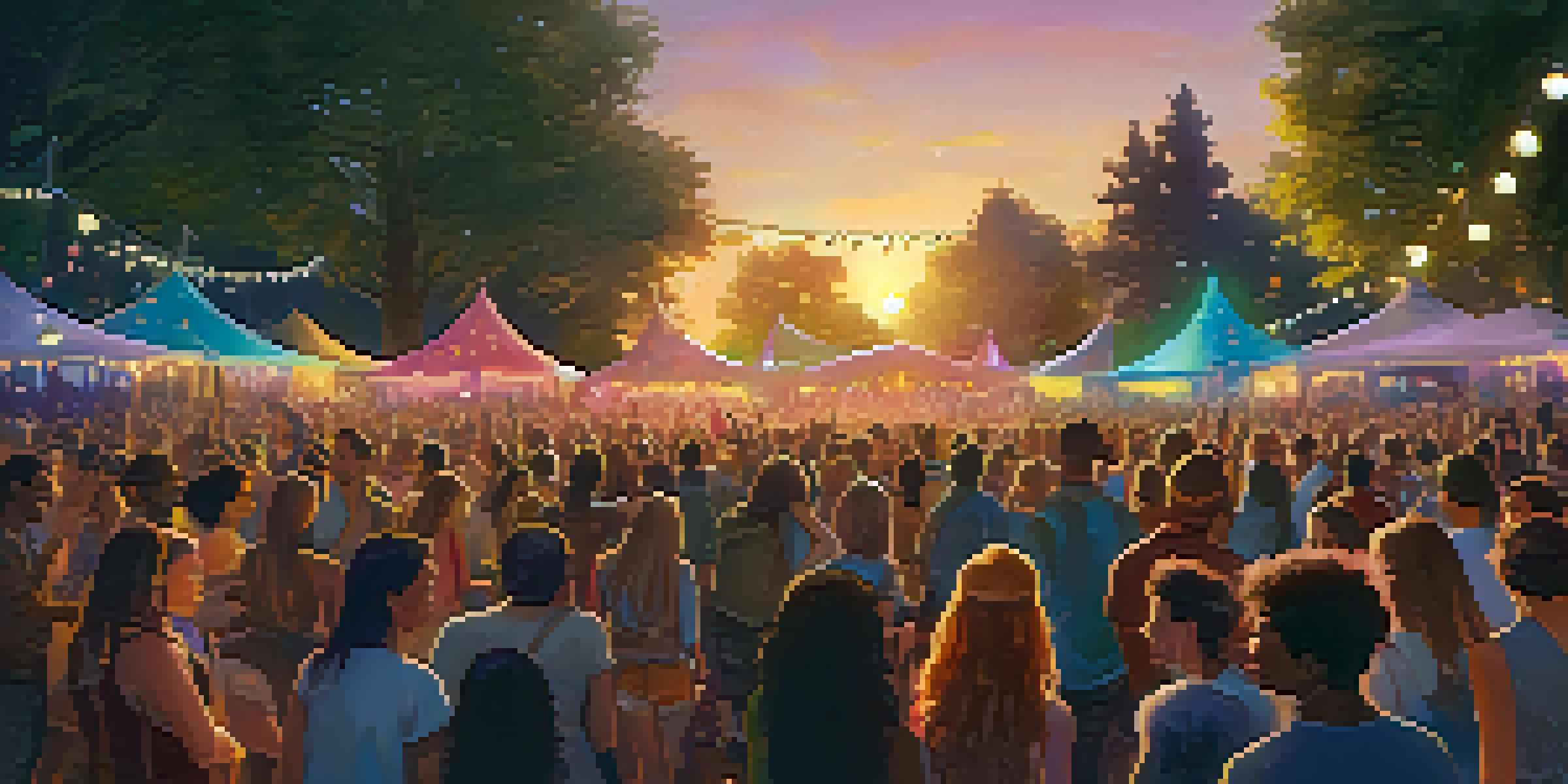The Evolution of Music Festivals: Past, Present, Future

The Origins of Music Festivals: A Historical Perspective
Music festivals have deep roots that trace back to ancient civilizations, where communities gathered to celebrate harvests or religious ceremonies through music. These early gatherings were often simple and focused on local talent, providing a sense of unity and joy. Over time, these occasions evolved into larger events, incorporating various music genres and attracting diverse audiences.
The Rise of Modern Music Festivals in the 20th Century
The 20th century marked a significant turning point for music festivals, with iconic events like Woodstock in 1969 capturing the spirit of a generation. These festivals became platforms for cultural expression and social change, uniting people through music and shared values. As the decades progressed, the festival scene expanded, introducing various genres and catering to different demographics.
Music Festivals Evolved Over Time
From ancient celebrations to modern gatherings, music festivals have transformed significantly, reflecting cultural changes and audience diversity.
The Explosion of Popularity in the 21st Century
Entering the 21st century, music festivals exploded in popularity, with major events like Coachella and Glastonbury drawing massive crowds from around the globe. This surge was fueled by social media, enabling artists and attendees to share their experiences in real-time. Festivals transformed into multi-day experiences featuring not only music but also art, food, and interactive installations, enhancing the overall atmosphere.
The Role of Technology in Shaping Festival Experiences
Technology has played a crucial role in shaping the festival experience, from ticketing and scheduling to live streaming performances. Innovations like mobile apps help attendees navigate the festival grounds and connect with fellow festival-goers. Additionally, advancements in sound and lighting technology create immersive experiences that elevate performances to new heights.
Technology Enhances Festival Experiences
Advancements in technology, including mobile apps and live streaming, have revolutionized the way attendees engage with music festivals.
Diversity and Inclusion in Today's Music Festivals
Today, there's a growing emphasis on diversity and inclusion at music festivals, with many organizers striving to reflect a wide range of voices and backgrounds. This shift has led to the rise of festivals that highlight underrepresented genres and artists, creating a more inclusive atmosphere. Attendees now expect to see diverse lineups that represent various cultures and perspectives, enriching the overall experience.
The Impact of Global Events on Music Festivals
Global events, such as the COVID-19 pandemic, have profoundly impacted music festivals, forcing many to adapt or cancel altogether. In response, many festivals embraced virtual formats, allowing fans to enjoy performances from the comfort of their homes. This shift raised questions about the future of live music and how festivals will continue to evolve in a post-pandemic world.
Focus on Diversity and Sustainability
Today's music festivals emphasize diversity in lineups and adopt sustainable practices, aligning with audience expectations for inclusivity and environmental responsibility.
Sustainability Trends in Music Festivals
As awareness of environmental issues grows, sustainability has become a focal point for many music festivals. Organizers are implementing eco-friendly practices, such as reducing waste, using renewable energy, and encouraging attendees to adopt sustainable habits. This commitment not only helps protect the planet but also resonates with audiences who prioritize social responsibility.
The Future of Music Festivals: What to Expect
Looking ahead, the future of music festivals is likely to be shaped by continued technological advancements and evolving audience expectations. We may see hybrid formats that blend in-person and virtual experiences, allowing for greater accessibility. Additionally, as the industry embraces new genres and artists, festivals will continue to diversify, creating exciting opportunities for both attendees and performers.